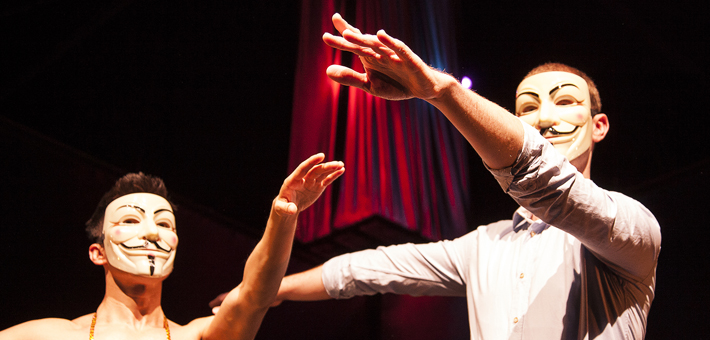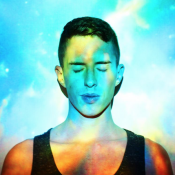“She saw all tradition as metaphorical. It was, in her mind, all about story, character, psyche. She would not drum any religion into her students. They would see, she knew, through dogma of any kind. What interested Thomasina in Greek studies was that there was no pretense that the gods had lived. Everyone knew they represented the character in all of us.”
-Annabel, Kathleen Winter
Queer people have no pantheon, so we’ve had to create our own.
Of course we want role models for young queer and trans people. Causes are helpful to organize around, villains are convenient to fight against, victims provide a sympathetic face that looks great on a poster, or sounds good in a slogan. And so we’ve created that pantheon, we’ve built a narrative as a community, as so many societies, religions and peoples have done before us.
As a dutiful, miserable, skeptical atheist, I often find that pantheon lacking.
Although I’m not nearly as bad as I used to be, from high school onwards I had a bad habit of finding an artist doing work I adored and would latch on to them. I would place them on a pedestal, worship the work they were doing. Then the layers would peel back and I would see them as the contradictory, imperfect, complex, perverse, petty humans that they were. Just like me. My heart would break a little at this inevitable knowledge, because it’s so much easier to worship an abstract ideal. Rinse. Repeat.
Throughout Hackerlove’s fictionalized exploration of the relationship between whistleblower/traitor Chelsea Manning and patriot/sociopath Adrian Lamo, I kept thinking about the New Jersey server and former marine who was stiffed her tip by a couple she served, who left a note on the receipt that read: “Sorry, I cannot tip because I do not agree with your lifestyle and the way you live your life.” Support and money poured in for her, the manager of the restaurant took her side, many stood up for her. She was both a victim and a hero for the community to rally around.
The only problem was that she apparently made up the story. The couple came forward anonymously and said they’d left a tip. While a number of media outlets relayed this aspect of the story, I cringed to see gay publications left the original story up online without comment or correction. The server eventually faced the consequences of her story.
This grasping of straws of LGBT media and the gay community as a whole is something that distresses me to no end. I remember the day that I read Queerty’s coverage of Rupert Everett stating some asinine opinion about gay parents—“[My mother] still wishes I had a wife and kids. She thinks children need a father and a mother and I agree with her. I can’t think of anything worse than being brought up by two gay dads. Some people might not agree with that. Fine! That’s just my opinion. I’m not speaking on behalf of the gay community. In fact, I don’t feel like I’m part of any ‘community.’ The only community I belong to is humanity and we’ve got too many children on the planet, so it’s good not to have more.”—was the day I stopped reading Queerty, because gay and/or celebrity culture is their business model. I thought to myself, “Why do I care what this idiot has to say? Why do we care what this idiot has to say? Do I need to care about what every moronic gay celebrity thinks just because they’re gay and I am too?”
A more recent example on a slightly more relevant celebrity, and a relevant member of our pantheon, being RuPaul: When I saw her in To Wong Foo and read about the Club Kids and walked a catwalk in drag in university with a sign that said, “We’re born naked, and the rest is drag,” she was, in my mind, a queen that could do no wrong. Then I got out of university and got a shitty job and got a little perspective and heard first-hand stories about her and realized she’s an ambitious queen with good business sense.
What, then, to say about the recent war over words when RuPaul aired a portion on her popular reality show called “Female or Shemale,” not to mention consistent use or condoning of words like “tranny” and “shemale” (or “she-mail,” har har) on said show? A line was drawn, sides were picked, angry blogs were written, Facebook comment wars were sparked. It became, depending on who you spoke to and where their sympathies lie, a matter of “overpolicing language” or a matter of confronting problematic terms. As a community we talk so much about finding love and acceptance in this horrible world, but when one of our heroes was challenged many of us apparently feel no qualms about picking the side of the oppressor… or the trailblazer… depending on which story you prefer.
A story is a way of making sense of the world by transposing a structured narrative onto it, and in experiencing them maybe understanding a little more about ourselves, or the world we live in. As queer people we love our heroes, villains and victims, and it’s starting to show that, like any other belief system, we hold them dear and sacred to us, at any costs. I adore stories. I love Greek myths as much as I love logging online and reading the stories that over saturate our lives these days.
Beware the pantheon, which sometimes even means rejecting it. Gods and demons don’t walk among us, queer, trans or otherwise. Only contradictory, imperfect, complex, perverse, petty people.


